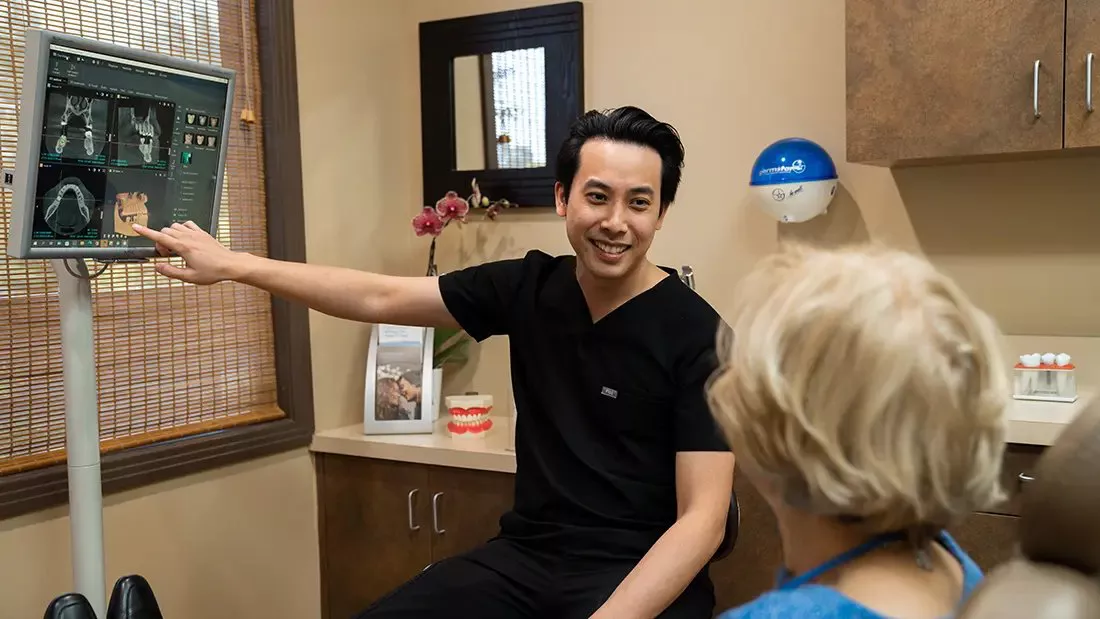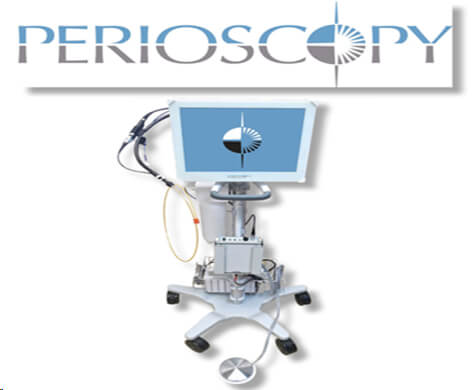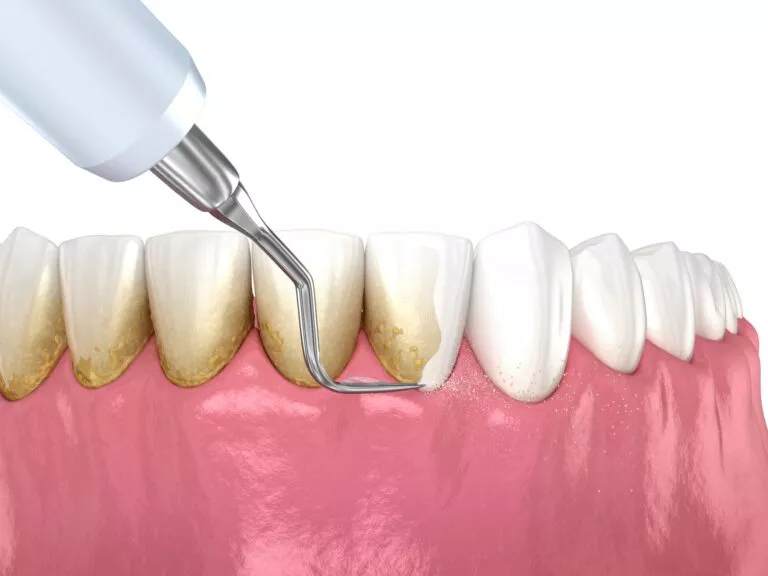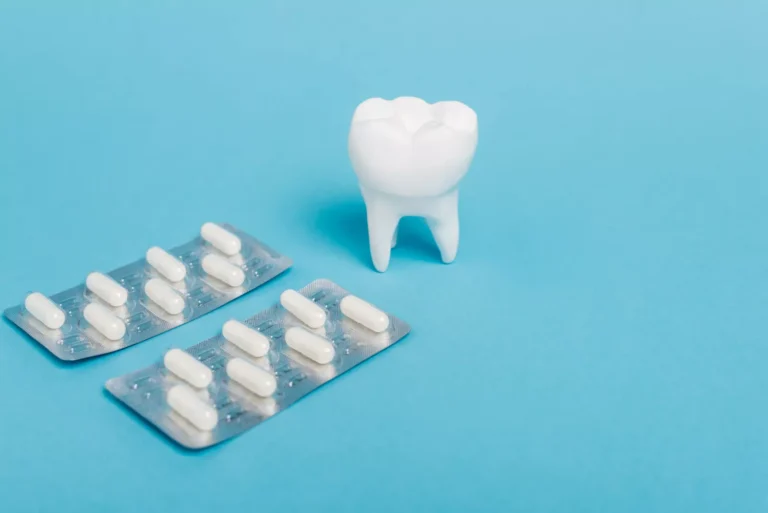At Foundation Dental Specialists, we take gum health seriously. Early detection and intervention are key to preventing the progression of periodontal disease.
Periodontal care focuses on the prevention, diagnosis, and treatment of gum disease — an infection that damages the soft tissue and bone supporting your teeth. Without proper care, gum disease can progress silently, leading to gum recession, tooth mobility, and even tooth loss.
Maintaining healthy gums is essential for overall oral health. Healthy gums act as a barrier that protects your teeth and jawbone from harmful bacteria. When bacteria accumulate below the gum line, inflammation develops, and the risk of systemic health issues such as heart disease, diabetes, and stroke increases. Early detection and professional care can restore gum health and prevent further complications.

Recognizing the warning signs of gum disease early can help you prevent more serious complications later on. You may benefit from periodontal care if you experience any of the following symptoms:
Even if these symptoms seem mild, early treatment can prevent more serious oral health problems. If you’re unsure, our specialists can evaluate your gums and recommend the most effective care plan.

At Foundation Dental Specialists, we take gum health seriously. Early detection and intervention are key to preventing the progression of periodontal disease.
Here are some reasons why you shouldn’t delay seeking periodontal care:
We offer a full spectrum of periodontal treatments designed to target disease at every stage. Each procedure is customized to your specific needs for optimal results and long-term gum health.
Perioscopy, also known as dental endoscopy, is a less invasive option to traditional periodontal surgery for some patients. It uses a tiny camera to visualize and treat periodontal pockets, the spaces between teeth and gums where plaque and tartar can accumulate. This magnification allows for more precise cleaning and treatment and may prevent surgical intervention and tooth loss.

Every patient’s journey to healthier gums begins with a thoughtful, step-by-step plan. We take the time to ensure your comfort, carefully treat affected areas, and support your long-term oral health.



Investing in your gum health today can save you time, money, and discomfort in the future. Periodontal care provides lasting benefits that go beyond your smile.
We’re proud to combine expert care with leading-edge technology to deliver better outcomes and more comfortable treatments. Our commitment to innovation helps patients achieve healthier gums with less discomfort and downtime.
Foundation Dental Specialists proudly provides exceptional Pasadena periodontal care to patients throughout the region. Our convenient location allows us to serve individuals and families across Pasadena, Altadena, Eagle Rock, Glendale, and the greater San Gabriel Valley.
At Foundation Dental Specialists in Pasadena, we believe everyone deserves a healthy smile that lasts a lifetime. Don’t let gum disease compromise your oral health or confidence. Our compassionate experts are ready to restore your gums with gentle, personalized care.
Contact us today to schedule your appointment and take the first step toward healthier gums and a brighter smile with trusted periodontal care in Pasadena, CA.

Gum disease is typically caused by the buildup of plaque — a sticky film of bacteria — that irritates and inflames the gums. Factors such as poor oral hygiene, smoking, hormonal changes, and certain medical conditions like diabetes can increase your risk. Regular cleanings and good at-home care can help prevent it.
Gum disease is commonly split into three different stages. The first stage is called gingivitis. In this stage, there is usually no permanent damage to your teeth or gums. This means your dentist will likely be able to reverse and eliminate gum disease with proper care. Common symptoms of gingivitis include bleeding when brushing, inflamed and discolored gums, and chronic bad breath.
If left to worsen, gingivitis will advance to the second stage of gum disease, known as periodontitis. This stage of gum disease is unfortunately not reversible but can be controlled with proper intervention. Symptoms of periodontitis usually include gum recession, increased sensitivity or sore teeth and gums, excessive gum bleeding, and very swollen or puffy gums.
The final stage is advanced periodontitis. In this stage, permanent damage to your teeth, gums, and jawbone occurs. Common symptoms include pus forming between the teeth and gums, shifting of the teeth, changes in your bite, or the loosening of one or more teeth. Surgical intervention is usually necessary to treat advanced periodontitis. In very severe cases, your teeth may even need to be extracted and replaced with a dental prosthetic like dentures or dental implants.
No, gum disease is not contagious. This is because it is caused by bacteria that are already present in all of our mouths. In a healthy mouth, these bacteria are not found in a high enough quantity to cause gum disease. These bacteria become an issue when they are left to reproduce and grow uncontrollably. Gum disease occurs when poor oral hygiene allows bacteria to reproduce, or if a patient is genetically predisposed to gum disease.
Gum disease is caused by large quantities of bacteria flourishing in the mouth. This can be caused by poor oral hygiene. Failing to brush and floss properly allows the bacteria that are present in your mouth to reproduce and form plaque and tartar between your teeth and your gums. Over time, these bacteria begin to attack and infect your gum tissue. Over time, this infection can result in permanent, irreversible damage to your oral health unless you seek out proper treatment.
Some patients are also genetically predisposed to developing gum disease. This is why it is important to discuss with your doctor if there is a history of gum disease in your family. You and your doctor will work together to employ the best at-home care and in-office treatments to protect against it.
Periodontal disease forms when there is inflammation in the gums. This inflammation can lead to infection caused by an abundance of harmful oral bacteria. The goal of the scaling and root planing therapy is to remove this buildup of harmful bacteria, however in some cases, your dentist may prescribe you antibiotics to help kill and control this harmful bacteria, allowing your gums to heal. If you are prescribed antibiotics to help control your periodontal disease, be sure to follow your doctor’s instructions to a tee to ensure the harmful bacteria is eradicated. If you fail to complete the full prescription of antibiotics, the bacteria could become resistant to subsequent treatments with the medication.